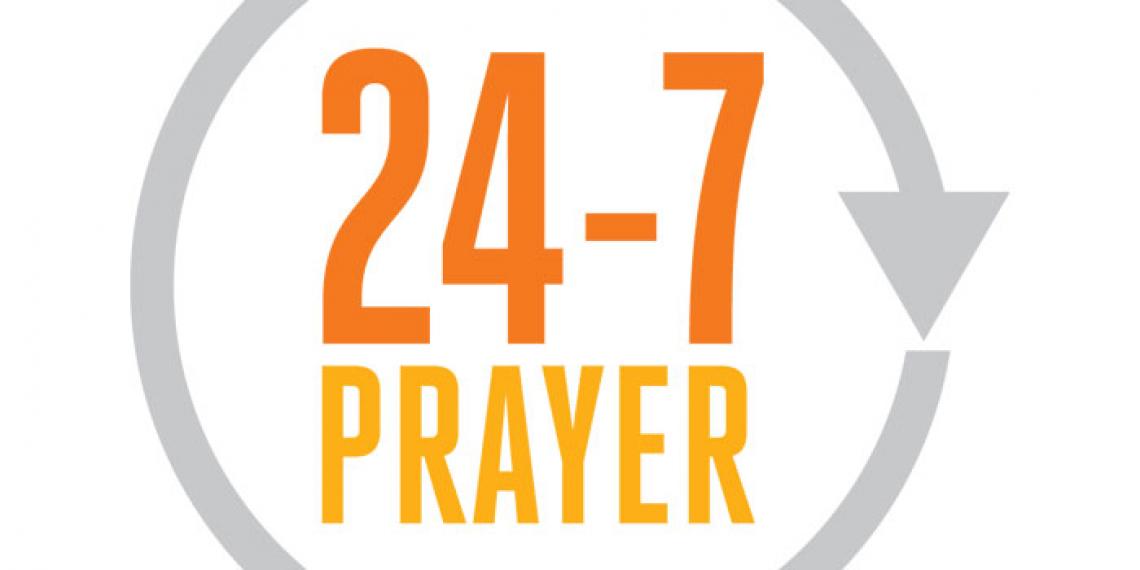You are here
Find your prayer voice

As the New Zealand, Fiji and Tonga Territory kicks off a year of non-stop prayer, it's time to rediscover our prayer voices.
Perhaps you’ve noticed, as I have, the hubbub of conversation that commonly happens prior to the start of a Sunday morning church service. People are enjoying catching up with each other—maybe sharing the news of the week, or taking the opportunity to ask something they needing to ask. Then, as the music team or meeting leader gets up to welcome everyone, the hubbub subsides because the signal has been given that ‘we’re starting’.
It strikes me as somewhat peculiar that the informal conversation prior to the formal meeting is somehow implied as ‘lesser than’ the planned elements prepared for our corporate worship. And where does that leave the cup of tea that follows, as we’re invited to ‘stay for fellowship’ following the meeting?
Another funny thing I’ve observed is that people who with relative ease engaged in lively and dynamic conversation before the meeting are suddenly reticent when the invitation is given for someone to pray. The silence that ensues is not necessarily uncomfortable if the worship that led to this point has laid a foundation for silent prayer and stillness, but there’s a definite awkwardness when the invitation for prayer is obviously for someone to say something … and nobody does!
What is it about praying aloud in front of others that seems so difficult? If prayer is conversation with God, why do so many of us find that conversation more difficult than our animated and pleasurable conversations with each other?
Find your voice
Finding our voice in prayer does take practice. It can seem that ‘others can pray much better than we can’, so it’s daunting to take the risk and try. A voice in our heads puts a compelling case to leave it for someone else; suggesting to us that we’ll muddle the words and it will all come out wrong. Memories of situations where we’ve found ourselves lost for adequate words provide us with sufficient reason for not praying in the moment that’s given. And so it comes as a relief when someone else does.
If this scenario sounds familiar to you, let me encourage you with some other observations.
The person whose praying ability stuns us into silence is able to pray like they do because they took the risk. They found their voice in prayer and continued to develop that voice. It’s likely their early steps of praying in front of others included writing their prayer, and simply reading it. It’s likely that the prayer you hear in the public place has been practised in the private space. Not only praying silently, but also praying out loud when they speak with God.
Our own voice can sound strange to our own ears. Do you remember the dreaded time in the school year when you had to prepare and deliver a speech? It was one thing to have the words on paper, and quite another to deliver those words in a confident voice. Those who succeeded in the annual speech competition did so because they practised.
Develop your vocabulary
They not only developed their voice, they developed their vocabulary. God’s Word is a wonderful source for our prayers. The book of Psalms is one source filled with declarations of praise and expressions of sorrowful lament.
Far from pretty at times, the Psalms often express heartfelt anguish, anger or bitterness of the one praying.
The Apostle Paul regularly included prayers in his letters to the New Testament churches. These are prayers we can adopt and adapt when we want to pray for others. Prayers are woven throughout the Bible, as are promises. All of these can help us develop our own prayer vocabulary by providing us with phrases richer in meaning than those we might construct ourselves. When we pray Scripture, we can be confident we’re praying according to God’s will.
Something else I’ve observed about people who pray powerfully in the public arena, is they have a connection with God that’s evidence of a deep and trusting understanding. There’s a tangible fluency and confidence to their words that suggests they have an intimate relationship with the One to whom they pray. God is not distant but very near. Relaxed familiarity is a result of spending extended time in God’s presence.
A call to prayer has gone out across our territory. 24-7 Prayer is a wonderful opportunity to develop our prayer life, but particularly to grow our relationship with God through extended time consciously spent in his presence.
So many people have experienced breakthrough in their prayer life by taking part in 24-7 prayer in their local corps. Now is the time for us to be an Army marching on our knees!
By Heather Rodwell (c) 'War Cry' magazine, 29 October 2016, pp 10
You can read 'War Cry' at your nearest Salvation Army church or centre, or subscribe through Salvationist Resources.
Call to Prayer | www.salvationarmy.org.nz/Prayer
Major Heather Rodwell is Territorial Secretary for Spiritual Life Development